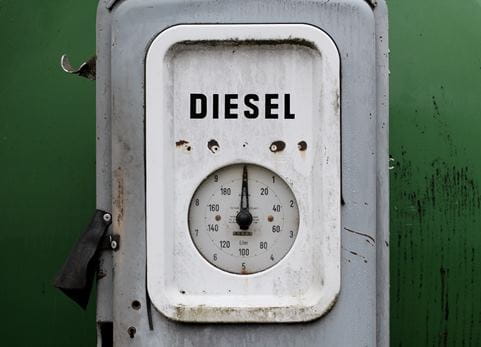Sweden - the first country with fossil free domestic goods traffic
With the transition to synthetic diesel made from vegetable oils and abattoir waste, DSV Sweden expects to reduce carbon emissions from domestic goods traffic by 90%.

As early as in September 2016, the Swedish domestic groupage transport will discharge 50% less carbon dioxide than today.
In the spring of 2016, DSV obtained permission from the manufacturers of Euro 5 and 6 engines to use the non-fossil HVO 100 diesel made from abattoir waste and vegetable oils.
DSV’s domestic groupage loads are handled in a closed HUB system that already ensures maximum utilisation of cargo capacity and thus reduces the number of vehicles on the roads. With the transition to HVO 100 (Hydrotreated Vegetable Oils), reductions of carbon emissions will total 90% as more and more filling stations offer the fossil free alternative.
Reducing carbon emissions by 13,000 tonnes
"Our groupage freight system uses 9 million litres of diesel a year, equivalent to 26,000 tonnes of carbon emissions. By converting to HVO 100 – followed by thorough control of hauliers’ compliance with the rules – we’ll have reduced our emission by 13,000 tonnes already by this September," says a proud Christer Hagsund, CFO, DSV Road AB.
"Today, we have 150 vehicles running on HVO 100 or biogas in our food distribution. Developments move fast and most new vehicles are approved for HVO 100. As more and more filling stations offer this fossil-free fuel, HVO 100 will become the most accessible biofuel that ensures a rapid transition to a non-fossil vehicle fleet," says Christer Hagsund who also carefully monitors the development of other, alternative fuels such as biogas, electricity and bioethanol. And he is in close dialogue with carmakers, oil companies and authorities to further reduce DSV’s carbon footprint.
"In accordance with our ISO 14001 certification, we work towards ongoing improvement and follow-up on our environmental efforts. Our goal is to successively enhance our performance and achieve reductions upwards of 90% when the prerequisites are in place," he says.
In Sweden, the price of HVO 100 follows the price of ordinary diesel as HVO 100 is exempt of duties.
